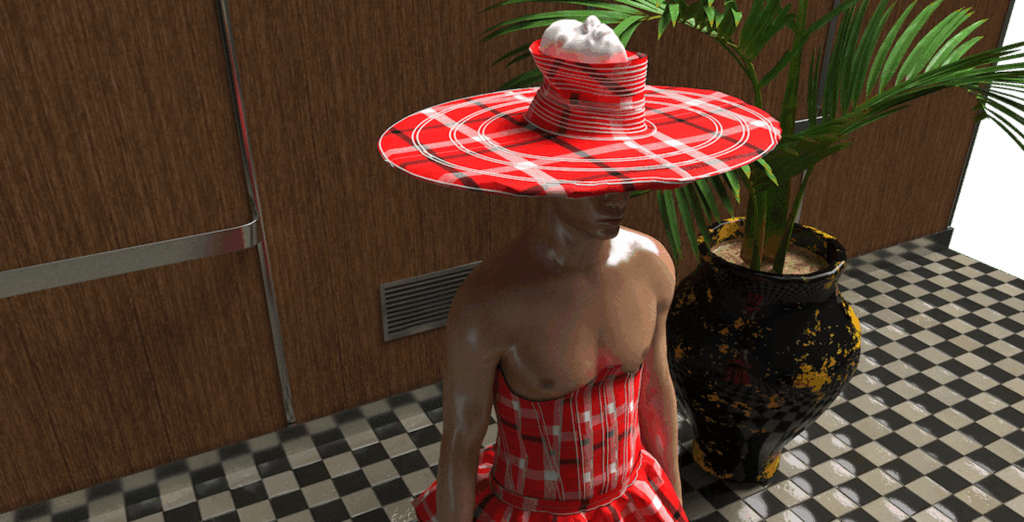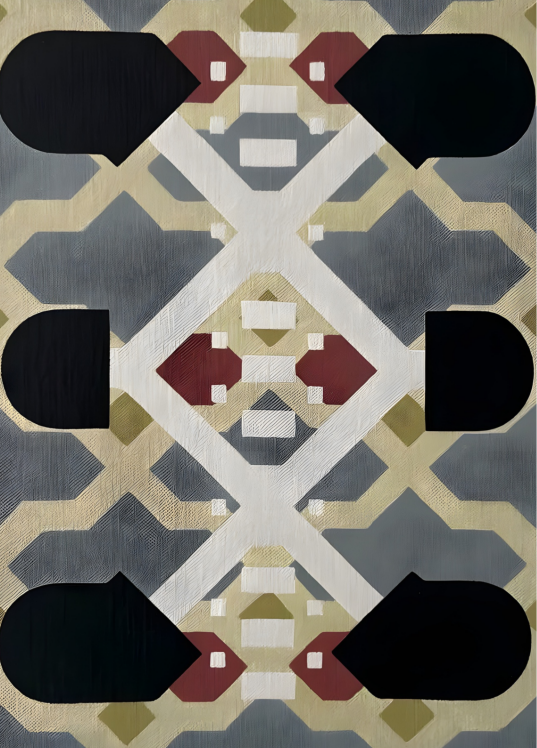Filmmaker, screenwriter and photographer Froukje Tan (1968) graduated from the Willem de Kooning Academy in Rotterdam, having studied animation, film and photography. She has made documentaries for children, a documentary series, plays for Dutch television and several short absurdist films among which Fishy (1994, short, co-directed with WdKA alumna Nanouk Leopold), Links/Left (2008) and Kung fu leeuw/Kung Fu Lion (2023). In this interview, she tells us everything about her time at the academy, her vision as a filmmaker and her latest movie Kung Fu Lion.

How did you end up at wdka?
"After my final exams at high school in Delft, I actually already knew I wanted to go to art school but I felt too insecure to apply for admission. I chose to take a gap year and use this time by taking many different courses and expanding my portfolio. I ended up at the Vrije Academie in The Hague and actually knew immediately that I wanted to learn more about film there. After that year I had a full portfolio and was accepted at several academies. I eventually chose the AV department at Willem de Kooning; I felt right at home here. It was the first time I ended up in a place that felt like home with people who looked like me and understood me. This made me feel safe and free."
How did you experience your time at the academy?
"Very good, although sometimes I did feel that my way of working was not fully understood. Besides the AV subjects such as animation, film and photography, I also chose the monumental direction. In the AV department, I really could do my own thing. I loved experimenting with all kinds of film and cameras and then working on the analog editing tables with the material I shot. I was there day and night. At the academy, for the first time, I no longer had a school mentality; I worked hard and a lot and was very motivated. Over time I found my own voice and realized that I actually had something to say."
What kind of graduate film did you make?
"I was interested in all sorts of film making. Because I couldn't choose, I made three graduation films: a documentary, a fiction film and an animation film. An ambitious plan, which ultimately caused me to take 2 years longer to complete my studies. For the documentary I went to Russia for 4 months, where I made a short documentary with a Russian friend and cameraman about the position of women in Russian society.
Looking back, I do find it very typical that I couldn't make a choice. I still use elements from different film styles. For example, in my fiction films I like to work with non-actors (as in documentary) and animated elements. I look for balance between reality and imagination in my films, aiming to convey my vision of the world.”
What did you start doing after the academy?
I won the Maaskant prize with my graduation work, worth 5000 euros. With this money I bought a wind-up 16mm Bolex camera, with which I left for India to set up a children's home there. I filmed everything and made a youth documentary series for VPRO's Villa Achterwerk. That's how I ended up in the youth documentary business. Although this happened a bit by accident, I also get a lot of inspiration from the way children look at the world. In the years after graduation, I combined making documentaries (often commissioned) such as The Day I Decided To Get a Girlfriend (2000, doc) and Shoving & Shuffling/Shoving & Shuffling (2001, doc) with creative and often absurdist fiction films including Fishy (1994, short, co-dir) and Het jongetje dat niemand verstond/The Boy Who Didn’t Understand Anybody (2003, short).
In 2001 I made a series called Oude Westen, commissioned by the NTR. That was fantastic, but also very heavy. I decided after that that I didn't want to make any more documentaries. I felt very much that I was pulling stories out of people, and wanted to create more from myself again. Writing my own stories.
I am currently working on the very last stage in the making of Kung Fu Lion, which will premiere at IFFR at the end of January and then be available in theaters from February 16. Kung Fu Lion is a story about the14-year-old Jimmy (played by Tyrell Williams), who practices kung fu. For the lion dance, which is performed out on the streets, he is determined to hold the head of the lion. But when his teacher, the sifu, announces the new crew, his dream comes crashing down. He has to make do with the tail end, while the talented newcomer Li Jié (Haye Lee) is given the coveted place. Jimmy does all he can to become number one and earn his place up front with the head. But this means he has to defeat a number of annoying bullies, convince the sifu of his qualities and, especially, overcome himself. Kung fu lion is an exciting film for young people about the challenges of growing up - which are easier to face when you're armed with the wisdom of the martial arts."

Did you suffer from the ‘black hole feeling’ after graduation?
"Definitely, but actually not only after my graduation. This is a recurring feeling that I have often encountered as a filmmaker over the years. It's part of the creative process in which projects sometimes come to a halt, are rejected or just come to a successful conclusion. As a result, you have to find the resilience to continue again and again. The idea for my latest film, soon to be released, was conceived 20 years ago. I had to send in my film plan several times, adjust it, and felt a lot of frustration each time it failed (just) to get a go from a broadcaster or fund. Looking back now, I think it just wasn't the right time for that film then, and now it is. In the end, it also just goes how it should go."
What kind of filmmaker are you?
"I make films with the goal of giving people heart. I want to show that despite all the painful moments, life is still worth living. In all my films there is a kind of positive, hopeful feeling to it. I don't want to be a filmmaker who is constantly confronting and waking people up. I choose to tell stories of hope, and hope to make the world a little more beautiful that way. I can marvel endlessly at the people and things around me and get a lot of inspiration for my films from this."
What is your favorite part of the process of making a film?
"There is something beautiful in all phases. In the conceptual phase, you are still completely free to come up with an idea. You then work this out in the research phase, which sometimes seems to last forever. Sometimes that's fun, but sometimes it's not.
I love the shooting days, when everything comes together and you are working very hard with everyone on set to bring the idea to life. At that moment it's the most fun there is, but I wouldn't want to do it every day. There is also a lot of pressure and stress involved. For example, during the shooting days of Kung Fu Lion, which was shot during the winter season, we were fighting the clock every day. At five o'clock it was dark, so we couldn’t shoot anymore.
I always find editing phase very confronting. Then you see what you've done, but also especially what you didn't do or could have done better. But the edit room is also where it is made, which is very beautiful. The film is actually reborn there. At a certain point you come to a point where you change everything, then bring back some things from your original idea and in the end you often come very close to what it should be. You shouldn't be afraid of that, it's part of the process. But it's not easy."
What was most valuable about your time at the academy, in retrospect?
"My fellow students. I learned a lot from them. I made many friendships, met special people and built a network. I still work with some of them, too. Above all, my time at the academy really laid a foundation of how I look at the world and how I relate to my surroundings."
What tip would you like to give to beginning filmmakers?
"In the theme of my last film; figure out what you want to become Kung Fu in. Kung Fu is more than a martial art, it's about mastery built on four pillars: attention, focus, love and discipline. My tip is to find your love first, and then devote your focus and discipline to this. Find what makes you run. There are endless ways to find your path. Look closely at yourself and what works for you. In addition, it is important to go into your creating process without judgment, otherwise you will get in the way of both yourself and your creativity."

